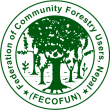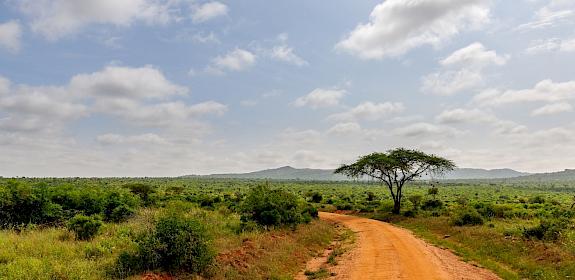New Project to Support Communities and Prevent Biodiversity Loss in the Himalayas
The lives of many thousands of people who harvest wild plants and fungi in the high mountains of Nepal are set to improve with the launch of a new project by TRAFFIC and partners.
High in the mountains of Nepal, a new project is launching to transform the lives of harvesters and safeguard a global biodiversity hotspot. Building on six years of success, we are empowering communities, promoting sustainable trade, and protecting the fragile Himalayan ecosystem.
Local harvesters, working in remote and challenging conditions, provide valuable plants and fungi like Jatamansi, Kutki, and Attis to the world, used in traditional medicine, aromatherapy, and even cosmetics. This trade is a vital source of income for Himalayan communities.
But overharvesting, climate change, and unsustainable practices have put both livelihoods and the ecosystem at risk.
This project aims to address these challenges by promoting sustainable harvesting and trade and safeguarding over 100,000 hectares of high-altitude habitats. Through training and resources, it will improve incomes and food security for 10,000 individuals, with a focus on gender empowerment and social inclusion.
A pilot traceability system will ensure fair prices for harvesters and responsible sourcing for buyers. The project will also advocate for policy changes to promote sustainable trade practices at all levels.
The Secretary of the Ministry of Forests and Environment of Nepal Dr. Govinda Prasad Sharma expressed full support of the Government of Nepal to the project at the project's official launch on 7 August 2024 in Kathmandu, convening key stakeholders from government, NGOs, and the private sector:
We are committed to protect and sustainably manage high value plants and fungi of conservation priority in the Himalayas. As a signatory to the Convention on Biological Diversity and CITES, Nepal complies with these international agreements by enforcing and implementing appropriate national policies. I believe that this project, focusing on plants and fungi, will help address challenges in biodiversity conservation and livelihood improvement of the forest-dependent people of the Himalayan region.”
UK Nature Minister Mary Creagh highlighted the UK's commitment to biodiversity conservation and sustainable trade:
“Under new leadership, the UK government will be an international leader in preventing biodiversity loss once again. We are proud that this project will protect threatened plants and fungi, which are some of the most distinctive and precious species found in the Himalayas, while empowering local communities and ensuring sustainable trade for the future."
TRAFFIC Project Leader Anastasiya Timoshyna, added: “Trade in wild species is one of the world's most pressing conservation and development challenges. This project represents a significant step forward in the conservation of Himalayan biodiversity and the promotion of sustainable livelihoods.
“By empowering local communities and building equitable trade partnerships, including unlocking regional and international trade and policy barriers, we are creating a model that can be further replicated, for the benefit of people and the planet.”
This new project represents a vital step towards a more sustainable future for the Himalayas and its people. By promoting sustainable trade and empowering local communities, it paves the way for a future where both people and nature can thrive.
Find more information about the project on our page:
Scaling conservation of Himalayan plants and fungi through sustainable trade
Notes:
Funded by the UK Government, through the Defra Darwin Initiative, and led by TRAFFIC in partnership with Asia Network for Sustainable Agriculture and Bioresources ANSAB, Federation of Community Forestry Users, Nepal FECOFUN, FairWild Foundation, University of Copenhagen, University of Oxford, Tribhuvan University, and WWF India, this initiative builds on past projects in training harvesters, sustainably managing land, and achieving certification for key species.
About the Darwin Initiative

Funded by the UK Government through the Darwin Initiative.
The Darwin Initiative is a UK government programme with a focus on biodiversity projects.
About Asia Network for Sustainable Agriculture and Bioresources (ANSAB)

Established in 1992, ANSAB has a vision of rural South Asia built on rich biodiversity and prosperous communities. This vision includes rich, healthy and productive ecosystems actively managed and sustainably used by formerly poor local communities. It also features adaptive people and resilient ecosystems able to cope with global climate change. Generate and implement community-based, enterprise-oriented solutions that conserve biodiversity and improve the livelihoods of the poorest of the poor while bolstering national economic development and addressing climate change is the mission of ANSAB.
ANSAB has implemented conservation and development programmes in more than 30 districts of Nepal and provided policy inputs and services to the government and development partners in seven Asian countries. ANSAB has introduced FSC certification in Nepal, supported enterprises in achieving organic and wildlife-friendly certification, supported NTFPs collector groups and producer enterprises for their management practices complying with FairWild standards, and led successful on-the ground implementation of the UKAID funded Darwin Initiative project 25-018. After the successful implementation of the project 25-018, UKAID funded Darwin Initiative program further provided the project 28-026 for the upscaling of the successes.
About FECOFUN

The Federation of Community Forestry User’s Nepal (FECOFUN) is a non-governmental organization that includes Community Forest User Groups (CFUGs) across the country with offices at the local and provincial level. FECOFUN emphasizes the importance of linking community forest user groups and the role they play in strengthening the rights, roles and responsibilities of users in policy-making processes. FECOFUN works at the grassroots and community level with a focus on sustainable natural resource management (NRM), community rights, gender equity, social inclusion, justice and prosperity. Since its establishment in 1995, FECOFUN has grown into a social movement organization with about 14 million people, all of whom are forest users. FECOFUN’s goal is to promote and protect the rights of community forest users through capacity strengthening, economic empowerment, sustainable natural resource management, technical support, policy advocacy, policy development and networking. All while upholding the values of inclusive democracy, institutional rights, prosperity, gender equity, and social justice.
About FairWild

The increasing demand for wild plants—as ingredients for food, cosmetics, well-being and medicinal products—poses major ecological and social challenges. The pressure on potentially vulnerable plant species can endanger local ecosystems and the livelihoods of collectors, who often belong to the poorest social groups in the countries of origin.
As a response to these concerns, the FairWild Foundation is working with partners worldwide to improve the conservation, management and sustainable use of wild plants in trade, as well as the livelihoods of rural harvesters involved in wild collection. TRAFFIC has supported the development of the FairWild Standard, and now hosts the organization’s Secretariat under a partnership agreement.
WWF

WWF is an independent conservation organization, with over 30 million supporters and a global network active in over 100 countries. WWF's mission is to stop the degradation of the Earth's natural environment and to build a future in which humans live in harmony with nature, by conserving the world's biological diversity, ensuring that the use of renewable natural resources is sustainable, and promoting the reduction of pollution and wasteful consumption. Visit www.panda.org/news for the latest news and media resources and follow us on Twitter @WWF_media.





